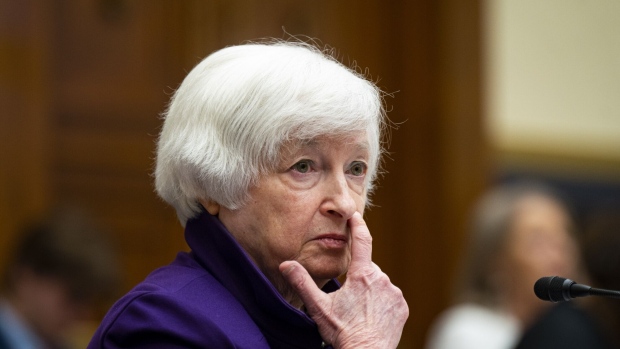Jul 13, 2023
The Toughest ESG Rule Yet Puts EU on Collision Course With US
, Bloomberg News

(Bloomberg) -- The woman in charge of getting Europe’s toughest piece of ESG legislation through the bloc’s parliament says she’s confident the US will embrace the global accountability the bill introduces, once politicians stop being distracted by lobbyists.
US skepticism toward the legislation has perhaps “been confused a little bit by the lobbying going on,” said Lara Wolters, the lawmaker helming the passage of the Corporate Sustainability Due Diligence Directive through EU’s legislative chamber. This week, she worked to close any loopholes companies might try to use.
“What we’re after here is accountability and surely the US government doesn’t support a lack of accountability for causing or contributing to human rights harms,” Wolters, a Dutch member of the EU parliament who’s been in the chamber since 2019, said in an interview.
The comments come roughly a month after Treasury Secretary Janet Yellen warned of “negative, unintended consequences” stemming from CSDDD. If passed, the directive means large companies selling products and services in the EU — wherever they’re based — would risk civil lawsuits for failing to address human rights and environmental violations in their value chains. CSDDD would also require companies to have climate transition plans that are aligned with the Paris Agreement.
Yellen said in June that the Biden administration is “concerned about the directive’s extra-territorial scope.” There’s support for CSDDD’s high-level aims, but some requirements “where there is no clear nexus to the EU” are concerning, so talks are underway with the EU, Yellen said.
The EU’s plan to push ahead with CSDDD underscores the very different trajectory the bloc is on from the US when it comes to environmental, social and governance frameworks. In the US, Republicans have sought to ban ESG across much of the country, and are penalizing firms that embrace it.
In a hearing last month, US Representative Frank Lucas, a Republican from Oklahoma, said Europe shouldn’t set standards for US companies, and regulators must be “diligent” in “defending US sovereignty.”
The House Financial Services Committee is holding hearings this month, during which the matter is set to come up. Among legislation proposed by the GOP is a requirement that the US Comptroller “conduct a study on the detrimental impact” of CSDDD and of ESG reporting requirements.
In Europe, meanwhile, lawmakers and regulators are rolling out the world’s most comprehensive set of rules ultimately designed to reinvent capitalism and steer money into greener, fairer activities. Much of the legislation is global in scope, as it requires compliance from asset managers and businesses that target EU customers.
Though far from perfect in its execution of the huge array of measures being pushed through, the European Union has moved much faster than other jurisdictions with its ESG ambitions.
Wolters says that CSDDD is necessary because markets can’t be relied on to self-regulate.
“It’s our job as policymakers to make guard rails where market forces fail,” she said. “I think the aim is absolutely one that the US government probably can subscribe to.”
Regulatory focus on ESG risks in supply chains is already shaping corporate priorities. A recent survey by Deloitte showed that ESG is now the second-top concern of chief procurement officers. As recently as 2021, it ranked seventh.
As it’s currently worded, CSDDD would require ESG due diligence checks up and down the value chains of companies or subsidiaries with annual sales in the EU starting at €40 million ($45 million).
The directive also targets the finance industry. An analysis published in June by the European Central Bank found that the litigation risks for banks “may substantially increase” once CSDDD becomes reality. The ECB has recommended a gradual phase-in of the directive.
CSDDD has already made its way through the EU Parliament and lawmakers are now negotiating its final wording with the European Council and the EU Commission. Wolters says there’s little likelihood the cross-border scope of the directive will be curtailed.
“What we’re doing here is, we’re setting out how companies of a certain size, of a certain turnover, ought to behave when it comes to human rights and environmental harm,” Wolters said. “And in this case, where there is significant turnover within the EU, I think it’s only normal that we set rules for that.”
(Adds finance industry exposure to the regulation in third-to-last paragraph.)
©2023 Bloomberg L.P.








